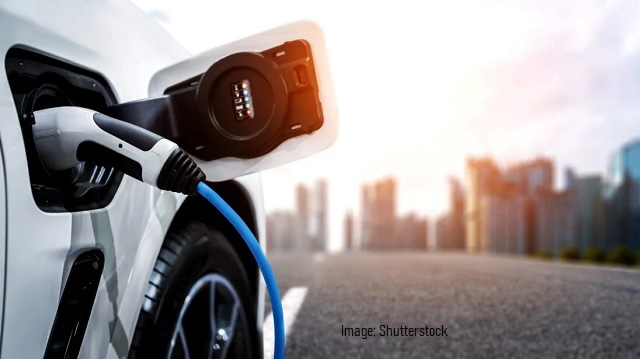If Consumers, Businesses Cared About ‘Climate’, The Last Cars They’d Buy Are Hot-Selling Electric Vehicles

Governments are forcing the public to buy EVs even if they don’t want the WOKE nonsense.
Holman W. Jenkins, Jr., Wall Street Journal, “A zombie business or industry, in today’s parlance, is one sustained less by creative destruction than by a combination of government bailout, regulation and hidden subsidies. This is what the global auto sector is becoming.”
The Upside-Down Logic of Electric SUVs
The auto industry gambles its finances on big electric vehicles for the rich, like Ford’s Mustang Mach-E and GM’s Hummer EV, and second-rate cars for everybody else.
By Holman W. Jenkins, Jr., Wall Street Journal, July 25, 2022:
If consumers and businesses cared about the CO2 they emit, the last cars they might buy are hot-selling EVs like Ford’s Mustang Mach-E or GM’s Hummer EV.
These large-battery, long-range vehicles would have to be driven many tens of thousands of miles before they rack up enough mileage and save enough gasoline to compensate for the emissions created to produce their batteries. And that’s according to their fans, whose calculations often smell of friendly assumptions about the source of the electricity consumed, whether gasoline driving is really being displaced mile for mile, and a presumed lack of progress in the meantime in reducing the carbon intensity of conventional motor fuels. Most problematic of all is the assumption that EV use causes oil to stay in the ground.
If a real incentive to reduce CO2 were in place, namely a carbon tax, buyers would gravitate to the smallest-battery vehicles and hybrids, suitable for running about town but not highway trips. These cars stand a better chance of offsetting their lifecycle emissions.
OK. Buyers aren’t drawn to the electric Mustang or Ford’s new F-150 Lightning pickup to solve climate change. These are exciting, high-tech gadgets in their own right. And that’s fine. Even so, customers’ appetite might slacken if they were told the truth. Ford leaked this week for the benefit of the investment community plans to lay off thousands of workers to fatten the profits of its conventional vehicles. This extra cash is needed to support electric vehicles that lose money despite taxpayer rebates plus hidden subsidies via our convoluted fuel-economy and trade regulations.
This trade-off could actually lead to worse emissions than otherwise (though still a rounding error in total global emissions) considering that most nonrich consumers will likely opt for gasoline-powered cars for decades to come. It also represents a gamble with the industry’s finances, which depend on large, government-protected profits from standard SUVs and pickups. If these vehicles start looking shabby and out of date due to lack of investment, the industry is in deep straits. As Ford CEO Jim Farley said in March, “we need them to be more profitable to fund” Ford’s $50 billion in spending on mostly high-end EVs, which have the least chance of being net reducers of CO2.
These outcomes make no sense in climate terms, naturally. Nissan is giving up its pioneering electric Leaf in favor of a big electric SUV aimed at affluent shoppers. One manufacturer that speaks confidently of profits in the near term from electric vehicles is Porsche—whose cars don’t rack up Camry-like mileages, don’t displace gasoline-powered trips to the Shop-Rite, and don’t stand a snowball’s chance of offsetting the emissions involved in producing their powerful batteries.
AUTHOR
Pamela Geller
RELATED ARTICLE: Charging an All Electric Car Uses 4 Times the Electricity of a Home Air Conditioner
EDITORS NOTE: This Geller Report is republished with permission. ©All rights reserved.


Leave a Reply
Want to join the discussion?Feel free to contribute!